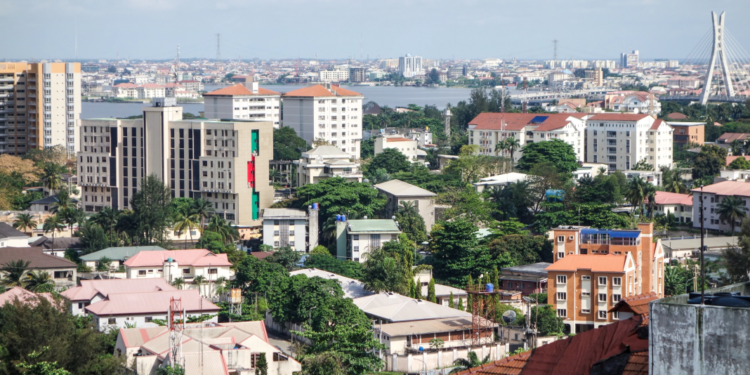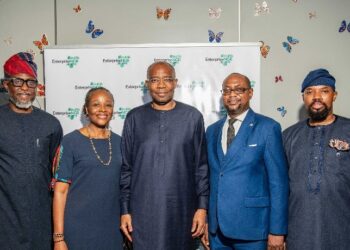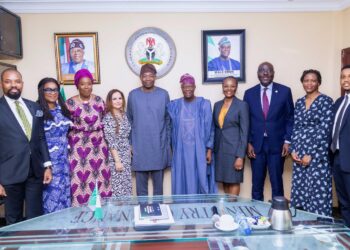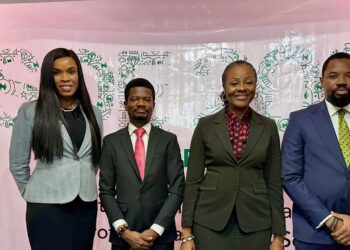The launch of the Global Financial Centres Index 38 (GFCI 38) last week sent an important signal about the competitiveness of financial hubs worldwide – and for Nigeria, it was a wake-up call.
Lagos, our commercial capital and the beating heart of Nigeria’s financial system, slipped further down the rankings, showing that despite our size and potential, we are not yet competing effectively with our African peers, let alone with the world’s leading centres.
Yet, within this sobering news lies a powerful opportunity.
With deliberate reforms and bold partnerships, Lagos can reposition itself not just as Nigeria’s banking hub but as a pan-African financial services gateway.
Why the GFCI Matters for Nigeria
The GFCI is more than just a ranking. Produced by London’s Z/Yen, a leading commercial think-tank and the China Development Institute, it assesses financial centres across 140 indicators – from regulatory stability and human capital to infrastructure and reputation. Cities like New York, London, Hong Kong, and Singapore dominate the top spots, while Africa remains on the margins.
The GCFI respondents across industry sectors such as banking, finance, Fintech, Government and Regulatory, insurance, investment management, knowledge, professional services, trade association, trading, etc. These respondents come from various regions across the world, such as Western Europe, China, Asia/Pacific, North America, the Middle East and Africa, Eastern Europe and Central Asia, Latin America and the Caribbean and multi-regional.
A strong GFCI performance signals credibility, attracts international banks, asset managers, fintechs, and talent. For Nigeria, it would mean more jobs, investment, and global influence. Conversely, sliding rankings suggest there is more work to be done in the area of knowledge, expertise and experience across the ‘areas of competitiveness’ to attract investor confidence.

Lagos in GFCI 38: The Reality Check
In GFCI 37, Lagos ranked 105th globally, and in GFCI 38, Lagos slipped further to 119th ranking.
This regression is not just about other cities improving – Lagos’ absolute score also declined, meaning the need to focus and improve on the competitiveness fundamentals. However, Lagos is among the international contenders with other centres such as Istanbul, Johannesburg, Manila, Cape Town, Bahrain, Nairobi, Kigali ,etc.
Meanwhile, Mauritius overtook Casablanca to become Africa’s leading financial hub, while Kigali and Nairobi are gradually climbing. The message is clear: size alone is not enough. Transformation and reform momentum matter more!

Thankfully, Nigeria is not asleep to these challenges. EnterpriseNGR, the advocacy group championing Nigeria’s financial and professional services sector, has been leading efforts to reposition Lagos on the global map. Its initiatives include:
- Lagos International Financial Centre (LIFC): a platform to brand Lagos as a credible, globally connected financial centre.
- Lagos International Financial Centre Council (LIFCC): a public–private partnership body driving reforms and coordinating stakeholders to strengthen Lagos’ competitiveness.
- CityUK Partnership: collaboration with the UK’s leading financial services body to learn from London’s experience, promote regulatory best practices, and deepen Lagos’ international and global connectivity.
Enterprise NGR’s annual State of Enterprise (SOE) 2025 report, which offers a deep dive into Nigeria’s Financial and Professional Service (FPS) sectors covering nine sub-sectors, evaluates each sub-sector’s performance and its impact on individuals, businesses and the nation’s real economy. The report provides useful key findings and pragmatic recommendations to address the key challenges.
These institutional frameworks are vital because no single regulator or government agency can deliver this transformation alone. Lagos’ future as a financial centre depends on sustained collaboration between policymakers, regulators, investors, and industry associations.
Why Lagos Struggles – and How to Fix It
The GFCI highlights why Lagos is slipping:
- Weak Infrastructure – power, transport, and office facilities remain unreliable.
- Shallow Capital Markets – underdeveloped compared to peers.
- Talent Drain – skilled professionals migrate abroad.
- Limited Global Perception – Lagos is not yet seen as a credible international centre.
But these are not permanent barriers. They are reform, transformation and investment opportunities.
What Nigeria Must Do Next
If Lagos is to climb the rankings and eventually lead Africa, Nigeria must act with urgency. The following steps are essential, strategic and tactical:
1. Stabilise Policy & Regulation
- Adopt consistent financial policies and avoid abrupt rule changes
- Strengthen contract enforcement and investor and customer protection
- Embrace global standards (AML/CFT frameworks etc).
2. Upgrade Infrastructure
- Prioritise reliable electricity and broadband as non-negotiables.
- Invest in modern financial districts, transport, and connectivity (land, water and air)
3. Deepen Capital Markets
- Expand the Nigerian Stock Exchange (NSE) with more listings.
- Develop bond, derivatives, and private equity markets
- Encourage regulated digital finance and fintech innovation (Lagos is 111 out of 116 Fintech centre ranked).
4. Invest in Human Capital
- Create postgraduate finance and fintech programs.
- Incentivise diaspora returnees with targeted schemes
- Build partnerships with global institutions for training and development.
5. Brand and Connect Lagos Globally
- Host global finance summits in Lagos.
- Use LIFC branding to tell Lagos’ story as Africa’s gateway (Invest in Lagos, Lord Mayor Show, Road Shows across key global centres)
- Strengthen ties with peer centres like Casablanca, Mauritius, and Kigali, while leveraging the CityUK partnership.
6. Leverage AfCFTA
- Position Lagos as the financial engine for intra-African trade.
- Push for harmonised payments systems and banking regulations across West Africa.
- Launch and activate pan-African financial products (cross-border trade finance, regional bond markets, diaspora investment schemes).
Call to Action
The fall in Lagos’ GFCI ranking should not be seen as a defeat, but as a call to arms and actions. The work of EnterpriseNGR and the Lagos International Financial Centre Council (LIFCC) shows that Nigeria is building the right institutional muscles. But now, urgency is key.
We must:
- Set measurable targets across the areas of competitiveness (e.g., move Lagos into the top 80 within five years).
- Monitor progress through annual reporting and benchmarking.
- Unite stakeholders across public and private sectors to drive reforms and transformation consistently.
- Curate and articulate clearly the LIFC story and capture the essence and value propositions.
Lagos is Africa’s largest city by population and Nigeria’s economic nerve centre. It has the scale, dynamism, and youthful talent pool to become a world-class financial hub. But potential is not enough – execution and storytelling are everything!
If Nigeria aligns its policies, invests in infrastructure, deepens capital markets, and leverages AfCFTA, Lagos can transform from being a domestic banking hub into a pan-African financial gateway.
The message from GFCI 38 is clear: the world will not wait for Lagos. We must act now!
This article is written by Abel Aboh – he’s recognised global Data and AI Leader passionate about data, AI, innovation, technology, trade, finance, education, and social mobility, follow on X: @abel_DMChampion
























